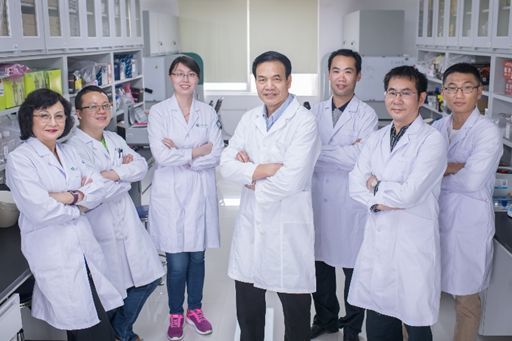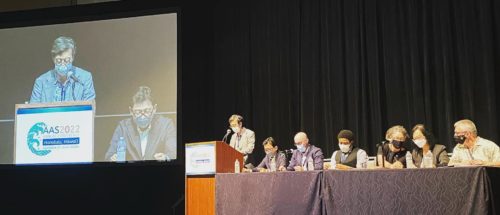Inside Emory’s crackdown on China-influenced research
Inside Emory’s crackdown on China-influenced research

On the morning of Tuesday, May 16, a postdoctoral researcher at Emory University in Atlanta arrived at his biomedical lab at the Medicine School to find that he was denied access to the laboratory where he had been working for almost three years. According to the student — who asked to be identified by the pseudonym Jiǎng Xīng 蒋星 due to privacy concerns — that day, the lab was unusually crowded with a team of administrative staffers sent by school authorities. They raided the entire lab without the knowledge or presence of its founder, Lǐ Xiǎojiāng 李晓江, a distinguished neuroscientist who moved to the United States from China in 1986 and achieved tenure at Emory in 2005 as a professor of human genetics.
“I was completely caught off guard,” recalled a visiting scholar from Wuhan University of Science and Technology, who joined Li’s lab less than a year ago and requested to speak under the name Hè Shūméi 贺叔梅. Without being given any explanation about what was happening, the two researchers, along with other employees at the lab, who are mostly Chinese, were taken to a conference room inside the lab’s building. Perplexed and slightly concerned, they were notified by two school officials that the lab had been shut down. Professor Li and his wife Lǐ Shìhuá 李世华, the lab’s co-leader, were dismissed from their posts.
Following the unceremonious sacking, they were escorted back to the lab, where they collected their personal belongings before the lab’s permanent closure. Some of them were ordered to hand over lab-related information from their private computers. By the time they left, the place was a “total mess,” He Shumei said, adding that the unidentified intruders had also broken into Li’s office, confiscated all the lab computers, and appeared to have searched “every corner of the room.”
“I repeatedly told them that I had no part in whatever projects Li was operating in China, but they were resolute about their decision,” Jiang said. “I was furious and felt being mistreated at the beginning. But later on I came to the realization that there was nothing I could do except accept the reality.”
In the days that ensued, He and Jiang were called in separately by the university’s Human Resources department to discuss what they were told was “the next step for the lab.” However, the conversations that they nervously anticipated turned out to be a disappointing combination of one-way interrogations about Li’s ties with China and meetings to announce their own firings. Jiang and He later received notices ordering them to leave the U.S. within 30 days after the termination of their academic programs. They were on J-1 visas which offer “cultural and educational exchange opportunities in the United States through a variety of programs overseen by the U.S. State Department.”
“It happened so fast and so dramatic that I almost felt like I was living in a movie,” He told The China Project after she flew back to China with her 8-year-old son in mid-July. Unlike He, who is affiliated with a Chinese institution that has a position waiting for her, Jiang quit his respected job at a high-profile scientific organization in 2016 in pursuit of research opportunities in the U.S. Having put his academic career in China on pause, Jiang said he made several attempts to negotiate with the school, but to no avail. “I repeatedly told them that I had no part in whatever projects Li was operating in China, but they were resolute about their decision,” Jiang said. “I was furious and felt being mistreated at the beginning. But later on I came to the realization that there was nothing I could do except accept the reality.”
And as the whole ordeal unfolded, professor Li was miles away in China, a place he had traveled to pretty frequently in the past decade because of his academic collaborations with several Chinese institutions. According to Li, Emory launched an investigation into his foreign research activities back in November 2018. The probe was prompted by the National Institutes of Health (NIH), a U.S. government-affiliated agency responsible for biomedical and public health research. Earlier this year, NIH told Congress that it had identified at least 190 NIH grantees with potentially problematic foreign relationships and proceeded to order more than 50 American institutions, including Emory University, to carry out investigations into the matter.

To try to prove his innocence, Li actively provided detailed information regarding his projects in China to Emory until March, when he was informed that NIH would make the final ruling after carefully going through all the materials. “I thought everything would turn out to be fine at that time,” Li said. But in May, a statement issued by Emory claimed that Li and his wife had “failed to fully disclose foreign sources of research funding and the extent of their work for research institutions and universities in China.” As a result, the school decided to end his employment and shut down his lab.
Influential in academic circles, Li worked at Emory for more than two decades and was leading the university’s research on gene-editing technology. The sudden termination of the lab, which was one of the oldest and most productive at the School of Medicine, left over 500 cages of research mice uncared-for and 6 NIH grants frozen, which, as Li notes, was a “massive loss” for the university, financially and academically.
In his talks with The China Project, Li never never shied away from explaining his research in China, insisting that there was no overlap between his U.S. and Chinese studies. In 2008, he was selected to join the Changjiang Scholars and Professors program by China’s Ministry of Education. Two years later, he participated in China’s “Thousand Talents” program. The three major papers he published in international journals this year were all the result of his long-term studies in China, where he especially maintained close relationships with Jinan University in Guangdong Province. “But my academic focuses in the two countries are vastly different,” Li said. “In the U.S., I rarely had the chance to do experiments on big animals like pigs, whereas in China that’s not a problem.”
“I never thought I was working for a particular country, but for the future of humanity. Maybe I was too caught up in my academic thinking. Maybe I should have taken more political factors into consideration.”
Li’s expulsion from Emory was not the only recent case where an American institution cut ties with Chinese researchers per order from NIH. In April, the University of Texas-affiliated MD Anderson Cancer Center ousted three Chinese scientists over concerns about their Chinese ties. The news spread quickly inside the community of Chinese scientists in the U.S. and Li was aware of it. “But I didn’t think much of it because I always believed in academic freedom. I never thought I was working for a particular country, but for the future of humanity,” Li said. “Maybe I was too caught up in my academic thinking. Maybe I should have taken more political factors into consideration.”
The political context that Li refers to is the escalating tensions between China and the U.S., which have not only endangered trade flows, but also have had a disruptive impact on academic exchanges between the two countries. In the past, U.S. government concerns about intellectual property theft were mainly focused on military and advanced computing technologies. But as the trade war rages on, that fear has extended to other scientific fields such as biomedical research. Last year, in an NIH statement by Francis Collins, the agency’s director said that U.S. biomedical research “is under constant threat by risks to the security of intellectual property and the integrity of peer review.” As he claimed, some researchers at NIH-funded institutions harmed U.S. interests by not disclosing “substantial contributions of resources from other organizations, including foreign governments, which threatens to distort decisions about the appropriate use of NIH funds.”
In an academic environment increasingly hostile to scientists who are ethnically Chinese, Emory might belong to a minority group of American universities that have taken what Li called “extreme actions” to avoid any potential troubles. About one month after Li’s sacking, Emory emailed a letter to its faculty on June 23. Titled, “Emory’s Commitment to International Collaboration, Federal Compliance,” the letter makes it clear that while the school will preserve its “decades-long tradition of welcoming international scholars,” it will also engage in active dialogue with members of Congress and the administration, and stay committed to fulfilling the pledge it made in the Securing American Science and Technology Act of 2019, in which it vowed to safeguard “federally funded research and development from growing threats of foreign interference, cyberattacks, theft, and espionage.”






